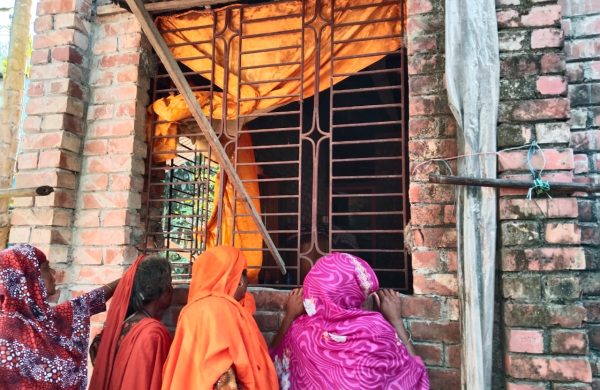IT IS A BIG CHALLENGE TO MANAGE SO HAPHAZARD EDUCATION SCHEDULE!
- Update Time : Tuesday, July 30, 2024

—Masum Billah—
Our educational activities have once again faltered amidst the recent jolt for which we were not prepared at all. It is true that no particular individual or institution can be held solely responsible for the prevailing situation. However, our entire student communities, ranging from primary to higher levels, are now dwelling upon an uncertain future regarding their education. Against this backdrop, a pertinent question arises— how can this situation be managed?
All the educational institutions have remained closed since 17 July owing to the recent quota movement mayhem. Meanwhile, our education minister has said, “Educational institutions will not be opened without ensuring hundred per cent security for the students. When a congenial atmosphere prevails, only then the institutions will resume their work. It will not be wise to open the institutions hurriedly’’.
That indicates uncertainty and a serious educational loss for millions of students in the country. We know the learning gap or loss at one level of education directly and indirectly affects the other layers of education as they are closely interlinked.
Our secondary and higher secondary levels have already experienced huge learning gaps due to natural and man-made calamities coupled with the indecision and delayed decision of the authorities concerned regarding different academic affairs. And the following stage of education is going to see its negative impact, but who bothers? Now, the current catastrophe has added another potential probability of learning loss.
Half-yearly evaluation in the secondary level took place in June and July last year but this year the authorities could not decide on when to start it. After changing the schedule four times, they just let the schools know about the test just one day before the evaluation began on 3 July, which also witnessed a huge amount of anomalies.
The evaluation was finally scheduled to be completed on 3 August, which has unexpectedly halted since 18 July. We saw the authorities could not decide on how to start and when to start the exam even in one year. And the thought of how they will manage this completely disrupted schedule has further thrown us into considerable uncertainty. And what about teachers and others involved in the education sector?
The latest concern is the HSC examination. We have already seen the exams of 21, 23 and 25 July were postponed. Fresh dates have not yet been known. Every year, the HSC exam is scheduled to start from 1April. Against this tradition, this year it started from 30 June because of the effect of flooding in some districts. What will happen to these examinees? How and when they will enter into the doors of higher education is another matter of uncertainty.
On 12 July, the third step results of admission seekers of eleven classes were published. They were supposed to get admitted between 15 to 25 July and that has also seen postponement. So far we have come to learn regarding this matter that admission procedure may start from 28 July and continue till 1 August while the classes may start from 6 August. It clearly indicates that the next schedule and step of education will have to be postponed likewise.
In the meantime, around 4500 Indian students recently left Bangladesh in a bid to escape the atrocities ensued from quota movement. A good number of them study in different private medical colleges here. Students from Nepal and Bhutan also left. It is a positive sign that students come to Bangladesh from surrounding countries for higher education, which helps bolster our foreign exchange reserves. However, the current situation has also led to a significant setback in this regard.
Every year, the Ministry of Education prepares an academic calendar to run the educational activities of the institutions. But this year, the calendar could not be followed from the beginning due to the flood and confusion regarding the introduction of the new curriculum. The activities of public universities got suspended because of teachers’ strike from 1 July.
On top of that, the disruption following the recent quota movement has again impeded academic activities. It may result in serious session jam in the coming days. The acting chairman of UGC says, “Already the public universities are going through a session jam due to corona.
The teachers’ movement and quota movement of the students will worsen it (the situation).” We know some well-to-do guardians send their wards to private universities to avoid session jam and student politics prevailing in public universities. But the movement that the country faces today has not spared those pupils. All sorts of pupils have been affected by the political mayhem prevailing in the country.
We can remember that demonstrating students of quota movement enforced ‘Bangla Blockade’ on 10 July and then they called for ‘total shut down’ from 18 July that met serious type of turmoil. Several hundreds of students and common people were killed and several thousand are still in different hospitals with serious wounds, mostly hit with bullets. We do not know when normalcy will return and academic activities will resume. If it is too late, we must start academic activities using some alternative ways so that the student communities can be saved from the impending disaster that we apprehend.
______________________________________
The writer is President, English Teachers’ Association of Bangladesh (ETAB)



















